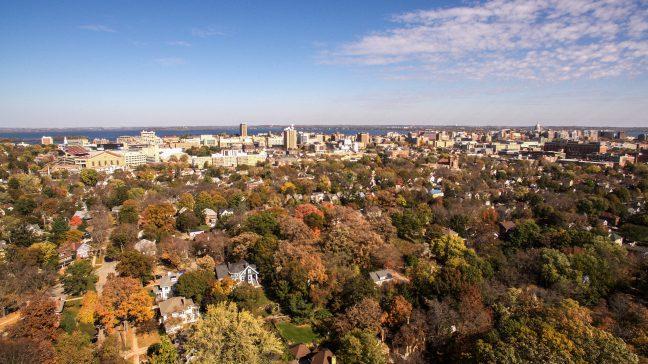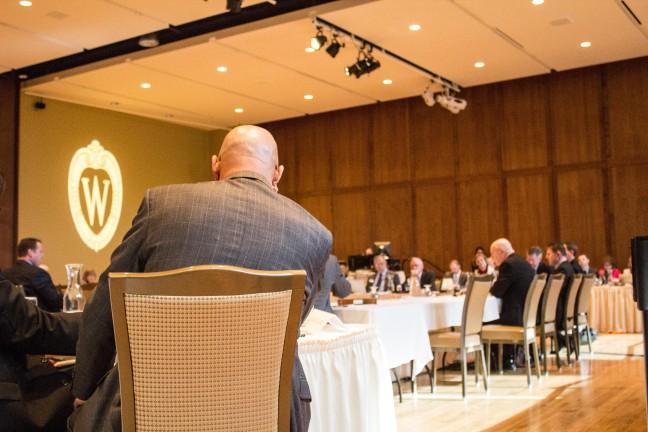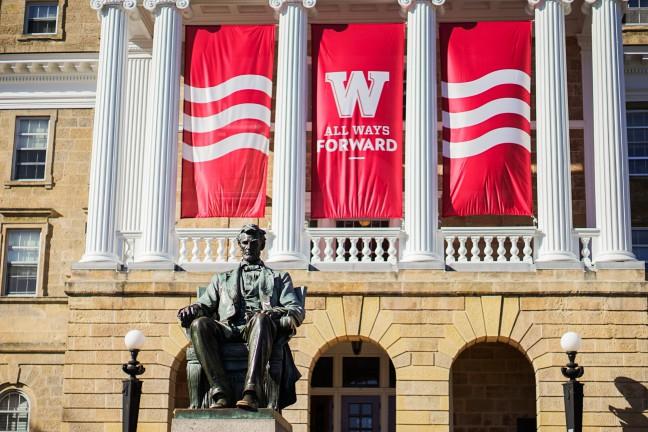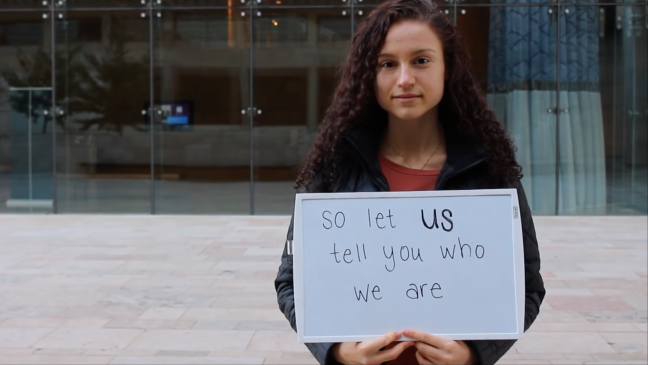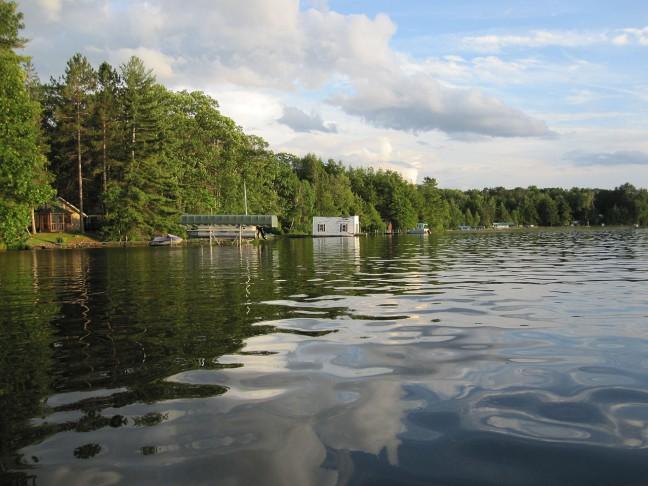The Badger Herald’s editorial board drafted nine questions it believes are important for the four finalists for the University of Wisconsin’s chancellor finalists to answer. All four candidates responded to our request. Below are answers from Kim Wilcox, a candidate from Michigan State University.
Each candidate’s response has been edited for clarity and style.
1. How has your previous work experience prepared you for this position?
I have served as a faculty member, department chair, dean, provost and system head, all of which at large [Association of American Universities] public institutions, so when it comes to running a large university like the University of Wisconsin, I know what to do and how to do it.
I have created new programs and initiatives in fields ranging from bioinformatics and bioengineering, to reproductive health, to nutrigenomics, to supply chain management, to the arts and humanities. I have expanded student services, extended international connections, revised curricula, and rewritten bylaws for academic governance. I have succeeded at fundraising as a faculty member through competitive grants and as an institutional leader in philanthropy and advocacy, with the state legislature and with the private sector. And, I have enthusiastically and proudly carried the important message of the value and the worth of higher education to the citizens of two states. To be sure, I also consider my “work experiences” as an undergraduate and graduate student to be central to my appreciation for and understanding of the voices of students. Most importantly, perhaps, my experiences have taught me to appreciate the values of UW and what the university means to the state, the nation, and the world.
2. How do you plan to handle the possibility of continued political volatility that leads to
changes in leadership at City Hall and the Capitol?
It is not inherent that changes, even dramatic ones, in civic and state leadership should cause volatility for UW. Our mission, our message, and our advocacy are about a shared and non-partisan leadership vision locally, regionally, and statewide. I have experience working with state, local, and national leaders and personally crafted a state-wide strategic plan for higher education in Kansas that was developed with the faculty and administrators of the state and heartily endorsed by the political leadership. Success of that type requires clarity of purpose and message, so that community and state leaders know what is important and what is necessary to achieve it. Success also requires an ability to listen to your critics as well as your supporters and to seek and engage their input in a meaningful and respectful manner. And lastly, success requires a firm resolve to present a clear vision both externally and internally and an equal commitment to following it. Public officials face many competing interests and we must be vigorous in assuring our rightful position among them.
3. The university has been immersed in a debate for the last several years about the
merits of administrative flexibilities and its role in the University of Wisconsin System.
What are your thoughts on this issue? Have you encountered a similar debate at
another institution?
I firmly believe a system does not have to be uniform to be unified, or to be optimally effective. I recognize that many place a high value on systemic efficiencies, and appropriately so. But Peter Drucker tells us that while efficiency is about doing things right, effectiveness is about doing the right things.
As the first ever President of the Kansas Board of Regents, I created the higher education system in Kansas and led state-wide discussions on the role and scope of a system and its constituent campuses. My core philosophy then, and now, is that a strong system provides guidance and support to the campuses, while recognizing and encouraging diversity among them. That recognition must go beyond simple notions of academic program differentiation, and must also include a willingness to recognize the fiscal and management differences among the campuses. It doesn’t make sense that a one-size financial plan, tuition plan, enrollment plan, etc. can fit all of the campuses of the University of Wisconsin, given their unique roles and responsibilities. I am happy to report that the system I created in Kansas served the state and also the campuses, something that I had the chance to appreciate from the campus perspective later, as the Dean of Liberal Arts and Sciences at the University of Kansas.
4. How would you balance UW’s status as an elite institution while maintaining its socioeconomic accessibility?
A great university is a place where outstanding people do outstanding things. There are great students in every one of the high schools of Wisconsin. My hope is that everyone one of them aspires to attend the University of Wisconsin and I will do all that I can to assure that dream is realized. I grew up in the upper peninsula of Michigan, a very rural and disconnected part of the country, but there were just as many talented students in my high school as any other like-sized high school in the state. Circumstances of birth should not be an impediment to studying at UW. Keeping UW open to the very best students from all types of backgrounds and perspectives is one of the best means of ensuring that the university will remain a leading institution, filled with the diversity of ideas befitting an elite institution.
Access without quality can reduce or even deny opportunity. UW must always be elite without ever being elitist. To achieve this goal, the outstanding students, faculty, and staff of the Madison campus warrant great support. As chancellor, I pledge to do all that I can to ensure that UW has the resources needed to keep its place among the world’s leading universities and grow its reputation at home and abroad. This type of support will help to ensure that when the state’s outstanding students arrive in Madison, they will find a diverse and world-class faculty ready to work with them.
5. Previous chancellors of this university have had contentious relations with the Faculty
Senate. Assuming that natural tension between Fac Senate and the Chancellor’s
office exists, how do you expect to relate with faculty politically?
I take pride in my record of achievement with faculty governance, helping to rewrite the Bylaws for Academic Governance for Michigan State University, taking the faculty’s direction in creating a system for academic program review, working together to craft an annual budget for the University, and expanding faculty voice across the campus. I will bring this commitment to shared governance to UW and will work to help ensure that the Faculty Senate is the strongest and most effective body that it can. I will serve as chancellor, but I will also join the faculty, so a strong Faculty Senate is of personal importance to me.
6. Chancellor Biddy Martin established a significant reputation for UW in China. What
strategies would you employ to maintain this global connection, and would you
expand our presence to other nations or regions?
Great universities like the University of Wisconsin have a responsibility to bring their talents to the world and to bring the world to the citizens of Wisconsin. As Provost at Michigan State University, I have traveled to nine countries on four continents expanding study abroad programs, research partnerships, and institutional relationships. Much of this work has been in China and I will use that experience to build on Chancellor Martin’s work. While China’s prominence will likely grow throughout this century I will work with the faculty and staff to ensure the University’s international presence is geographically broad and strategically positioned to take advantage of UW’s expertise as well as that of our international partners.
7. The University of Wisconsin has a history of athletic achievement. What do you see
as the role of an athletic department in a university?
At their core, universities are places for teaching and discovery, but there is much beyond the core. We are also centers of economic development, political energy, and entertainment. Just as the University Theater and the Chazen Art Museum help us entertain and connect with the community, so too do Badger athletics, and like the Theater and Museum, we expect the Badgers to represent the very best of the UW-Madison. We expect the Chazen to offer world-class exhibits, not second-best shows, and we expect the Badgers to consistently compete for championships. We expect the student actors in the University Theatre to excel in their craft, to be respected, and to show respect to their audiences. So too, we expect our student athletes to excel in an environment of ethical conduct and mutual respect. Intercollegiate athletics are one of the great delights of a university. They play a role in conveying institutional identity, and they can bring the campus community together and inspire us; and that is the role that I will work to help them maintain. In managing the department, I will expect it to be student centered, accountable, innovative, mission oriented, and a national leader among athletic departments with strong strategic visions and records of compliance.
8. Chancellor David Ward’s term has encountered controversy surrounding UW’s
business involvement with companies like Adidas and Palermo’s Pizza. What are
your thoughts on these disputes, and how do you evaluate Ward’s handling of the
matter?
Universities the size and complexity of the University of Wisconsin-Madison have business relationships with thousands of entities. That provides us with the opportunity to shape the business behaviors of others but it also comes with the responsibility to monitor those behaviors to help ensure they reflect our values. The recent controversies on campus underscore the complexity of today’s international supply chains and the difficulty of monitoring behaviors across that network. I applaud UW’s tradition of values-driven business decisions and will work to maintain it as chancellor.
9. At a large university like UW, a schism sometimes forms between scientific research
and the liberal arts. What do you think should be the primary focus of UW’s academic
mission?
I served as Dean of the College of Liberal Arts and Sciences at the University of Kansas, a college with more than 50 departments and programs from the humanities, natural sciences, and social sciences. That experience taught me that despite the differences, there is far more mutual support than tension across the fields that compose a community of scholars. Central to that commonality is a shared commitment to advancing knowledge through unbiased exploration and debate. Part of a chancellor’s role is to ensure that we maintain a commitment to knowledge creation at the highest possible level across all the disciplines, and a culture of respect for one another.








